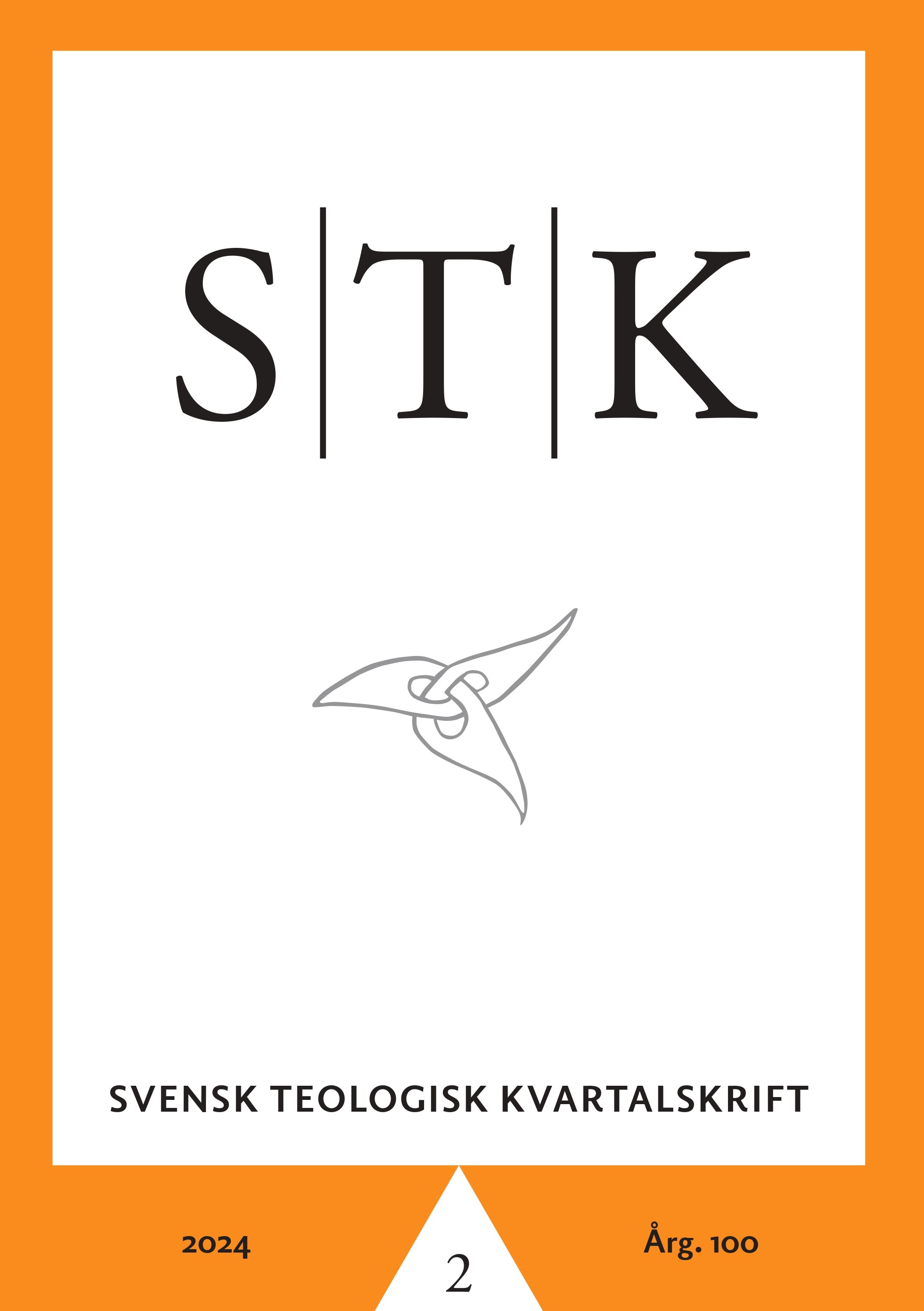Rudbeckius, Hägglund’s Codex, and the Problem of Authorship Ascription
DOI:
https://doi.org/10.51619/stk.v100i2.26358Abstract
In 1992, Bengt Hägglund put forward a thesis according to which a codex in his possession is based on material Johannes Rudbeckius (1581–1646) authored in 1611, maintaining that the codex gives us information about Rudbeckius's lectures on loci theologici in Uppsala during the years 1611–1613 and that it reveals to us characteristic features of Rudbeckius's thinking about dogmatics. Hägglund published the codex in 2001. I point out, first, weaknesses in Hägglund's argumentation. Second, I present indirect evidence against his thesis employing the two series of Rudbeckius's published dissertations on dogmatics (1611–1613, 1620–1644) and his own comments about his lectures. Third, I indicate that three parts of the codex that are particularly important for Hägglund's argumentation stem from other authors: the introductory part on the nature of theology, as well as the chapter on locus de ecclesia, have their origin in Jesper Brochmand's Universæ theologiæ systema (1633), while the conclusion is taken from a dissertation that Balthasar Meisner published in 1614. The codex does not allow us to access a work Rudbeckius would have authored in 1611: it contains too many parts he cannot have authored then. In particular, the introduction and the conclusion of the codex do not tell us anything about Rudbeckius's characteristic thoughts on dogmatics. Hägglund's main reason for thinking that the codex is a transcript of Rudbeckius's work from 1611 is a date mentioned at the end of locus of the church. As it happens, this locus is borrowed from Brochmand, not from Rudbeckius.
Downloads
Published
Issue
Section
License
Copyright (c) 2024 Tero Tulenheimo

This work is licensed under a Creative Commons Attribution-NonCommercial-NoDerivatives 4.0 International License.


